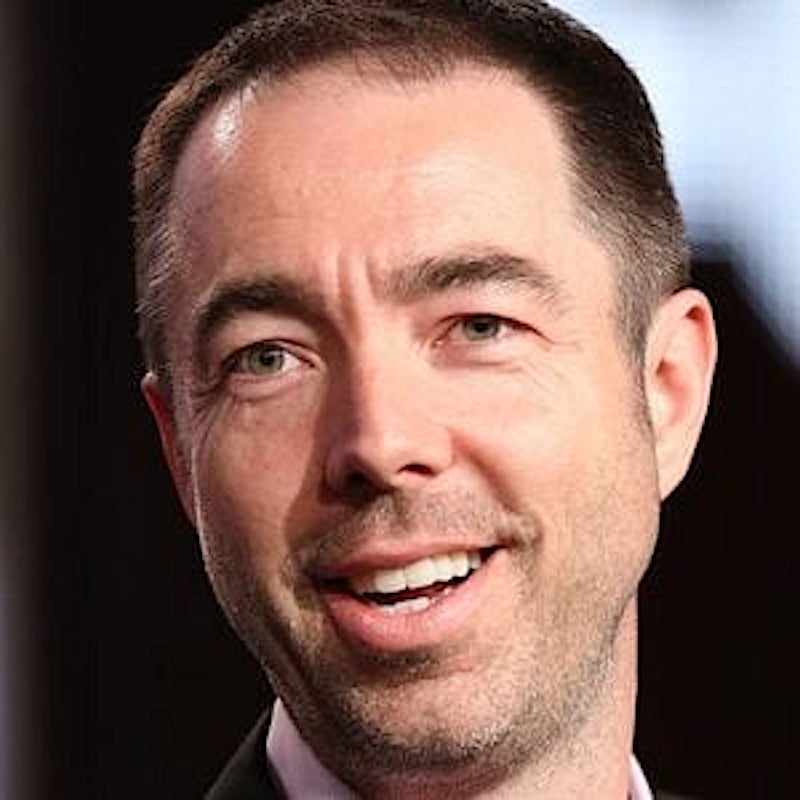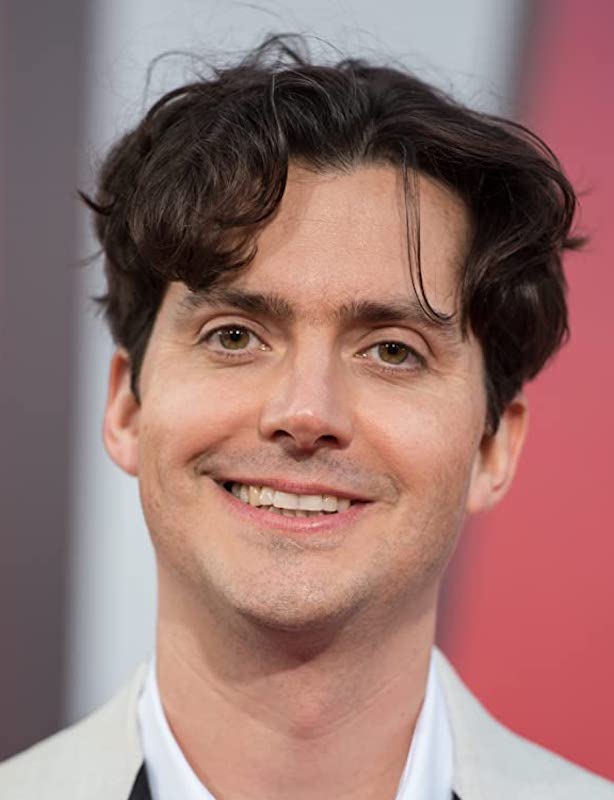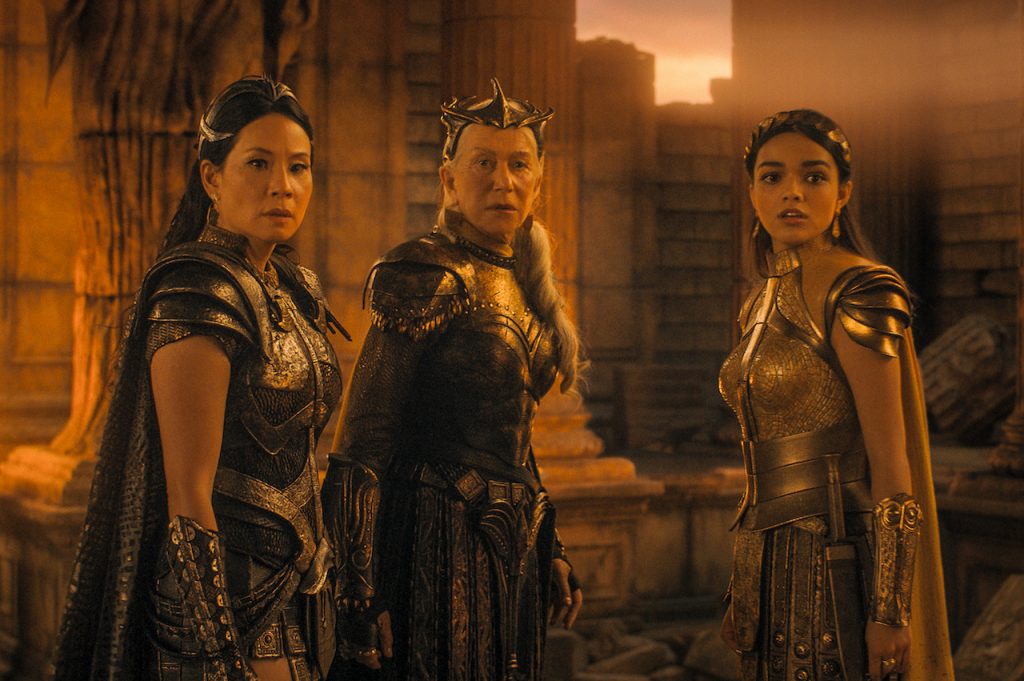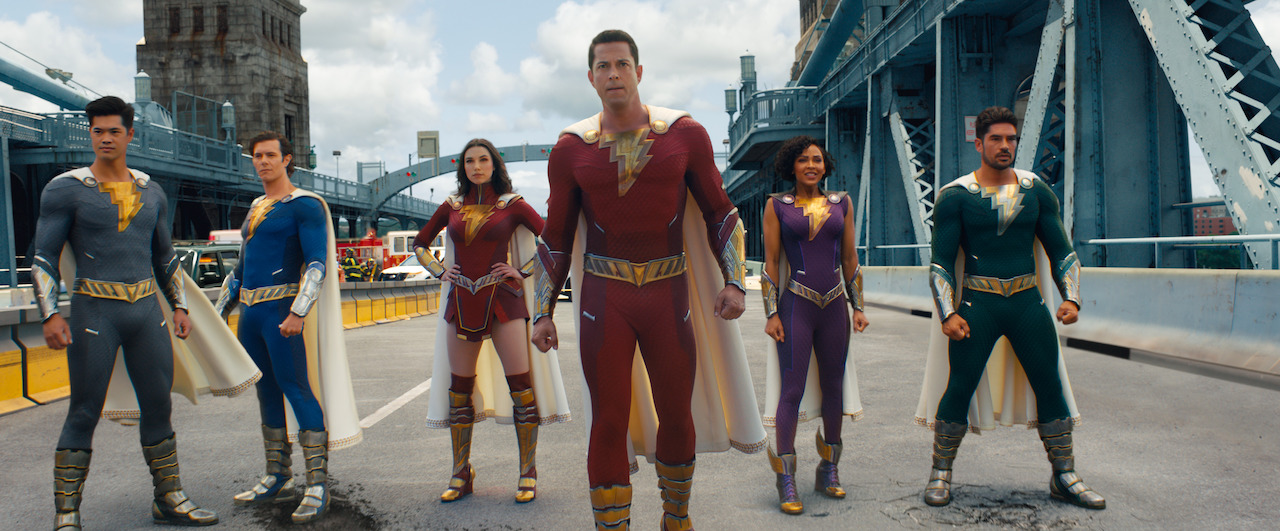Our current cinematic landscape is largely populated by superheroes from two major comic book publishers – D.C. of which Shazam and Wonder Woman belong, and the other one. Screenwriters Chris Morgan and Henry Gayden spoke with Creative Screenwriting Magazine about writing the sequel to the 2019 Shazam! hit.
We asked them what differentiates these two comic book worlds. “It feels more like a tonal difference in the way the movies have gone so far,” opines Chris Morgan (Fast and The Furious, Hobbs & Shaw). “I think, as the movies have progressed, they’ve started to realize it’s not just about the tone. It is about characters and journeys and humans dealing with issues, regardless whether they have superpowers or not,” he continues.
“I felt a little more liberal and freedom in D.C. to make it a little more personal because it wasn’t so much focused on building out a large universe all the characters,” chimes Hayden (Spider Man 3).
Shazam! was created along the traditional mechanics of studio franchise movies. They made the first one, it did well, so they made a sequel and will continue doing as long as the audience keeps showing up. “We weren’t really, I think, tethered to a larger plan, despite it being around us at all times. We could just kind of have fun in our little sandbox,” states Morgan.
Shazam! has been in the public consciousness for decades, so team Morgan and Gayden had a mountain of source material to reference, honor, innovate, or even ignore. “It really comes down to Geoff Johns and Justice League: Trinity War (The New 52), reveals Morgan. “We’ve seen the old TV shows, Shazam! from the seventies. There’s also an old serial from the forties. There are all the old Captain Marvel comics,” Morgan continues. (Check out our interview with Geoff Johns).
During the original transformation of Shazam! in the Captain Marvel serials, Billy Batson simply became an adult. When Geoff Johns entered the scene, Shazam! became a child in a man’s body, so that really nailed the playful, painful, adolescent tone of the modern movies.
Billy Watson (currently played by Zachary Levi) is undergoing a rapid and substantial transition. “He’s defined by trauma, loss, trauma, and wanting to belong. He was forced to grow up a little faster, and yet he hasn’t,” adds Morgan. “I think in the first movie in particular, he’s defensive and doesn’t trust easily. And yet, inside, he’s very vulnerable and longing for a family that he has right in front of him.”
Billy’s naïvity allows him to fight relentlessly with the heart of a teenager. “He never gives up which makes him super rootable,” says Morgan. Shazam! is in constant dialogue with his altar ego Asher Angel (who plays Billy Batson) who allows him to do all the things he thought he couldn’t.

Chris Morgan
“He gets the wisdom of Solomon, but he doesn’t seem to use it. It’s hidden in there, he has probably has access to it, but maybe he hasn’t unlocked it just yet. It’s still a lava that may shed its cocoon because it’s not a butterfly yet,” says Morgan.
Most superhero films require a mentor archetype that facilitates their growth. In this case, it’s the Wizard (Djimon Hounsou). He saw something in Billy that not even Billy understands, let alone see. “Actually he sees something real in Billy, but he also has to to make a last-minute decision to get a hero before he turns into ash,” adds Hayden.
“We’re humanizing the Wizard a little bit. You’re so used to seeing this archetype as the kind of all-knowing powerful wizard. It was nice to get a little under his skin, let him be a little petty, and give him a little banter,” says Morgan.
Wizard and Billy mightn’t seem as a natural fit, but despite Billy not necessarily being the “Chosen One,” they share both share a mutual wound of loss and search for a family. “Maybe that’s the thing that he saw in Billy and couldn’t put his finger on it exactly,” says Morgan.
Found Family Is Your Rock
Shazam! and his buddies are part of the foster family system. A system that they’ll all eventually grow out of and forced to fend for themselves.
“When I did the first movie, I did a lot of research into the foster system and foster care,” states Gayden. “A lot of times you see the terrible side, because that’s where everyone dramatizes the traumatic side of it or when it fails. But there’s so many positive stories that aren’t like that,” says Gayden. “I have a couple friends who are foster parents I spoke with, and then personally connecting as someone who lost family when I was young, I have eternally been putting my ‘found family’ together. So emotionally, I connected with that because that’s what a lot of foster families do,” elaborates Gayden.

Henry Gayden
“Billy ends up having a mother that he finds, who ultimately isn’t gonna be the mother he needs or wants. And that happens a lot in life in the foster system and also having a lot of people who aren’t even in the foster system who find their true family outside of their real family. I’ve always felt that was the emotional anchor for that entire household.”
Marta Milans (Rosa Vasquez) portrayed the foster mom in Shazam! Fury Of The Gods as a beacon of stability, support, and hope for her children. “I think there’s a hopeful message in all of that, whether you think you’re alone or not, whether you have blood relatives or not, the people around you that stand up for you, those are your family,” proclaims Morgan.
Shazam! saw Billy Barton find his family and in the sequel he needs to figure out what to do with it. “His answer was hold on so tightly that he almost strangles it, because he’s terrified of losing it,” says Gayden. This was Billy’s internal conflict.
The irony of Fury Of The Gods is that even though the villains Hespera (Helen Mirren), Kalypso (Lucy Liu), and Anthea (Rachel Zegler) are the threat in the movie because they want to destroy the world, but the real danger is Billy strangling the family and and then having to find a way to course correct before it’s too late.
The role of the Greek Gods in the mythology of Shazam! Fury Of The Gods is evident. “What you’re really talking about are ageless people,” elaborates Morgan. “I think it really is more about magic, ability, and eternal life than it is about omnipotence.” As is often seen in Greek mythology, gods possess human traits, good and bad. “The goddesses have infighting and weaknesses, hopes and pains,” he continues.
Shazam! and his buddies are group of foster kids that constantly screw up. “But then, they discover that these powers came from unfathomable sources and origins and infuse the story with a lot more meaning, depth and stakes.” adds Gayden.
A large part of growing up is finding endless failure along the path of success. “I think in a very real way, something that I fully relate to is living in an imposter syndrome because Billy is constantly failing at the beginning of this movie,” says Gayden.
On several occasions, Billy bemoans, “I don’t really know if I deserve this. I think the whole arc of his story is realizing that what he had in him, he didn’t even know was there.”
“And it’s really kind of working through that and admitting it, admitting that he feels like he’s failed, gets him to learn how to succeed at being his authentic self.”
According to Morgan, “You look at a scientist, and you’re always doing experiments and the expectation is that you fail and that guides the way to what the next experiment will be. It’s how we comprehend and file away evolutionary successes. It’s growing up and learning that way.”
Shazam! Fury Of The Gods is peppered with jokes and various pop cultural references to give it a humorous tone. Most of them came from Henry Gayden. “Henry naturally understands the teenaged brain,” says Morgan.
Darren Linke wrote a draft of Shazam! Fury Of The Gods adapted from the New 52 which was handed to Henry. “I felt that it was genetically engineered in a lab for me. I was gifted this property. It really plays into things I love and things about myself. Sometimes, I take myself sometimes too seriously, and that’s actually when I’m funniest,” jokes Gayden.
Gayden, like his characters, doesn’t realize they’re funny and ridiculous. “That’s what makes the audience love them and laugh.” Henry isn’t a fun of overly-serious tones, so he enjoyed the levity he brought to Shazam!
“I want to love every one of my characters and connecting to stuff that would hopefully move people, even in this kind of sort of silly mood,” he adds.
Chris Morgan loves Greek Gods because they’re so petty and so brutal to humans. “They’re great, vain, fun kind of characters to work with. “They’re very, very powerful of characters, dealing with the same shit that humans do.”
It’s easy to simply dismiss the three goddesses as embodiments of pure evil. That would portray them as two-dimensional. Anthea is pursuing a romantic interest with Freddy Freeman (Jack Dylan Grazer) and she’s torn between loyalties. We really don’t know where she’ll end up.
Once the realm of the three goddesses is unlocked, they seek justice and revenge. “You have the youngest Anthea, who is more forgiving and curious, and then you have Calypso, the middle sister who is vengeful to a tee, and then you have Hespera, the older sister who’s between, conflicted and wondering what is the right way to mete out justice,” adds Gayden. “Having that play out between the three, debating it at some points, makes it a much more interesting and compelling villains as a unit.”
Gayden quotes a moment when Hespera asks Billy, “If a thief drops money on the ground and you picked it up, do you think you deserve it?” Perhaps we don’t despise the goddesses so much if they reframe their conflict in that way.
“If we understand their story, their destiny, and their legacy, their actions make sense. Everything has been taken from them, Everyone they’ve known has been killed by this event caused by our heroes. And they now are coming to make things right. I don’t think they look at the destruction of our world they way we do. I think they are remaking their world,” adds Morgan. Now you’ve got compelling drama. “In their mind, they’re actually the saviors. They have waited thousands of years, endured unimaginable loss and sadness, and now’s the moment that they can make it right and they’re going to punish the people who did it.”

Kalypso (Lucy Liu), Hespera (Helen Mirren) & Anthea (Rachel Ziegler) Photo courtesy of Newline Pictures/ Warner Bros Pics
The Writing Process
Writing ensemble pieces requires keeping meticulous track of multiple characters. For Henry Gayden, it comes down to who he loves the most at a point in time rather than a process. “I just splinter myself into all of them.”
Some times he leans more into Freddie and others into Billy. “Darla is the part of me that always wants everyone to be happy and like let the people please her. Pedro is the one who doesn’t feel like he belongs and Freddy is the one who like cobbles together an identity out of his nerdy obsessions. Each of them is informed by a part of me that I feel very much, so that they can live in my head.”
Henry Gayden doesn’t fully form the characters at the script stage. “Even in post-production, you invent.” He uses Pedro (D.J. Cotrona) as an example. His coming out story was a lot fuller originally with him being obsessed by a player on the Philly team that he finally got to meet. In the end, it was just a look.
Chris Morgan writes every story beat on post-it notes rather than index cards because you are forced to write less. “And then when you look at it, you know what the plot is, you know you have your
ensemble cast, and they all are going to need their moments. You just pick where that’s going to happen and what fits best for them. It’s a more practical way that I bring to the ensemble stuff.“
